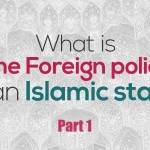8 Islam’s Measures for Realizing Economic Justice / part 8
#8
Lawful sources of wealth
Sources of ownership, or the means by which man can gain wealth, property and amenities of life, are looked upon by Islam as important matters, which define the identity of the economic system, its method of distributing wealth among members of society, fighting poverty and need, and rooting out greed, exploitation and unlawful ways of gaining wealth.
Islam sets two key ways of gaining wealth which are work and need. They are lawfully accepted ways of ownership. 8
A/ Employment and natural resources: One may work in agriculture, mining, industry or any field of production or one may give one’ s services in the fields of medicine, engineering, transportation, education, trade … etc. In Islam, employment in any field of lawful activity, is the chief way of acquiring wealth and money. Islam lays out great emphasis on the personal role in securing wealth and obtaining money, as we have previously detailed.
B/ Need: In the same way Islam made work a legal way of getting money and wealth, it made need a source of ownership for wealth to fight destitution and poverty. But ownership here is different from the former one.
For ownership, in the first case, is the fruit of the direct interaction between man, nature or raw materials, or services rendered to satisfy some needs. Man here becomes entitled to ownership in return for the fruits of his labor.
As for ownership by need, it is the process of conveying property or wealth from one owner to another one on account of the need for it by the new owner. In order of precedence, the latter kind of ownership comes second to the first one. Ownership by need is placed in the category of owning something by inheritance and maintenance as in the case given by the husband to his wife.
The needy, who cannot work, due to bodily infirmity or can find no work, has a share in the money set aside from the taxes of Zakat and Khums, or from the money allotted by the state to meet the needs of the impoverished.
The ultimate result of this economic system being put into practice is that every single member of the Islamic community becomes economically secure. He neither fears poverty nor does he worry about his daily life. On the contrary he feels secure, and has confidence in the community and state he lives under its shade.
Once this unmatched economic system is implemented, and security in welfare prevails alongside with stability. All man’s efforts then are channeled into one conduit, which is the competition to do good and to work for building and constructing a society far removed from in-fighting and aggressive and destructive erosions.
Source
Economic Distribution in Islam.
Presented by: Al-Balagh Foundation
References
- Al-Tabari, Mirza Hussein al-Nuri, Mustadrak al-Wasa’il, chapter on zakat.
- Al-Kulaini, al-Kafi, vol. 3, 3rd ed., p. 497
- Sa’id Hawa, al-Rasul (The Messenger), vol. 1, pp. 121123.
- Al-Kulaini, al-Kafi, 3rd ed., p. 668.
- Ibid, p. 164.
- Al-Kulaini, al-Usul min al-Kafi, vol. 2, p. 170.
- Al-Hur al-Amili, Wasa’il al-Shi’ah, vol. 6, 2nd ed., p. 49.
- There are other ways of ownership in Islam allied to work and need, including inheritance, maintenance, donation, gifts, profits of endowments … etc, which our main focus has not separated out.

